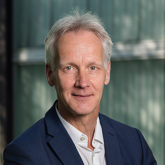About the Project
Shock absorbers play a critical role in aerospace systems by protecting structural integrity during launch, flight, and landing. They do this by mitigating extreme forces acting on key components, such as launcher brackets and sensitive payloads. The "SMART DAMPER" project, funded by the European Space Agency (ESA), aims to develop an intelligent damping system by combining the geometric versatility of additive manufacturing (AM) with the adaptive properties of NiTi shape memory alloys (SMAs).
Superelastic NiTi SMAs possess unique characteristics, including the ability to recover their original shape after deformation. This allows them to be reused across multiple loading and unloading cycles. Additive manufacturing, particularly Laser Powder Bed Fusion (L-PBF), enables the direct integration of energy-dissipating features, making it possible to design customizable structures with mechanical properties tailored to specific payload requirements and varying operational conditions.
The project focuses on the design and fabrication of a structural prototype, such as a payload support or structural bracket, that incorporates NiTi SMA lattice structures. This prototype will serve to demonstrate the practical benefits and technological advancements made possible through the integration of AM and SMAs.
Your Role
We are seeking a highly motivated Engineering Doctorate (EngD) candidate to contribute to the development of a systematic framework for the design and manufacturing of a smart damping component. The focus of your research will be on investigating the relationship between damper design, microstructural quality, and the functional performance of 3D-printed dampers for aerospace applications.
The Engineering Doctorate (EngD) is a post-master's program offered by the university. Approximately 50% of the two-year program will be dedicated to this specific assignment, while the remaining time will involve a tailored educational program. This educational component consists of post-master courses and workshops designed to prepare you for the management and execution of this and future design projects. Upon successful completion of the program, you will be awarded the academic title of EngD and registered as a Technological Designer in the Dutch register maintained by the Royal Institution of Engineers in the Netherlands (KIVI).
You will collaborate closely with interdisciplinary experts from various institutions, gaining practical experience in applied research, design methodologies, advanced material characterization, and project management. In addition, you will be expected to contribute to scientific publications and support the dissemination of project outcomes.
Information and application
Please submit your application before June 9th, 2025, using the "Apply now" button, and include the following:
- Curriculum Vitae, including contact details of two academic or professional references.
- Bachelor’s and Master’s transcripts.
- Title and abstract of your Master’s thesis/project.
- Proof of English proficiency (e.g., IELTS or TOEFL).
- A 1-minute video explaining why you are the ideal candidate for this position.
Incomplete applications, those missing any of the required documents or the video, will not be considered. For additional information about this position, you can contact Dr. Mehrshad Mehrpouya at m.mehrpouya@utwente.nl.
Preferred Start Date: July–August 2025
About the organisation
The Faculty of Engineering Technology (ET) engages in education and research of Mechanical Engineering, Civil Engineering and Industrial Design Engineering. We enable society and industry to innovate and create value using efficient, solid and sustainable technology. We are part of a ‘people-first' university of technology, taking our place as an internationally leading center for smart production, processes and devices in five domains: Health Technology, Maintenance, Smart Regions, Smart Industry and Sustainable Resources. Our faculty is home to about 2,900 Bachelor's and Master's students, 550 employees and 150 PhD candidates. Our educational and research programmes are closely connected with UT research institutes Mesa+ Institute, TechMed Center and Digital Society Institute.





